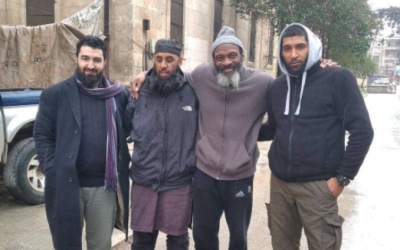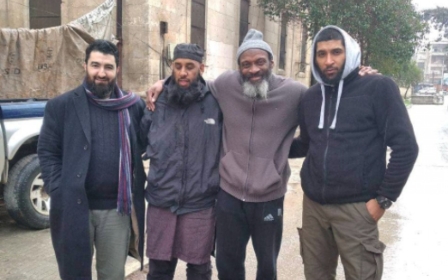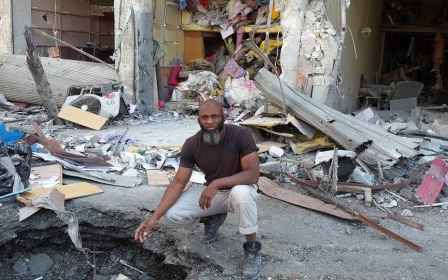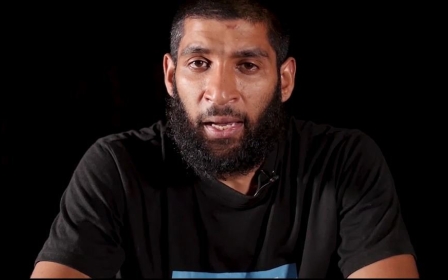US journalist Bilal Abdul Kareem banned from reporting by Syrian militants

An American journalist based in Syria's opposition-held Idlib province has been banned by militant group Hay'at Tahrir al-Sham (HTS) from appearing on social media and reporting from within the country, according to his own news organisation.
In a statement on Wednesday, On the Ground News said Bilal Abdul Kareem had been banned from social media for six months as a condition for his release from detention by HTS earlier this month.
On the Ground News, which has covered Syria's civil war from within opposition-held territory since it was launched by Abdul Kareem in 2016, said it had been banned from reporting on Syrian affairs for three months.
Abdul Kareem, who is also a Middle East Eye contributor and has worked with media organisations including CNN, Sky News and the BBC, was detained by HTS in August after he highlighted allegations of torture inside the group's prisons.
New MEE newsletter: Jerusalem Dispatch
Sign up to get the latest insights and analysis on Israel-Palestine, alongside Turkey Unpacked and other MEE newsletters
He was released on 17 February. HTS said he had been sentenced to one year in prison on charges of "working with groups that harm public security", "incitement" against the group, and "publishing and promoting lies that affect institutions without evidence or proof".
It said he had been released conditionally following a petition submitted by local elders.
A photo of Abdul Kareem being greeted by On the Ground News colleagues and Tauqir Sharif, a British aid worker who was also detained by HTS last year, was circulated on social media following his release.
HTS is a coalition of militant groups, including a former affiliate of al-Qaeda in Syria, which controls most of Idlib province.
On the Ground News has not reported on events in Syria on its Twitter feed since 17 February when it posted about the death of a Turkish-backed civilian police officer and his six-year-old son shot by a gunman on a motorcycle in northern Aleppo province. It had previously posted multiple tweets about Syria each day.
Abdul Kareem, who is best known for his reporting from the final days of the battle in eastern Aleppo in 2016, last reported for MEE in March 2020 on opposition in Idlib to a ceasefire deal that had seen Russian and Turkish forces jointly deployed along a key highway in the province.
Abdul Kareem's detention by HTS came amid a wider crackdown by the group on dissent that also saw activists, aid workers and members of rival militant groups arrested.
His case attracted the attention of press freedom monitors, with the Committee for the Protection of Journalists and Reporters Without Borders both expressing concern about his detention.
Ignacio Miguel Delgado, Middle East and North Africa representative for the New York-based Committee to Protect Journalists (CPJ), told MEE that restrictions imposed on Abdul Kareem amounted to censorship.
"Bilal was arrested and held for several months for reporting on allegations of torture in HTS-run prisons and by banning him from social media and reporting HTS seems to be trying to muzzle critical reporting," said Delgado.
"CPJ calls on HTS to reverse its decision and allow journalists to do their job freely and without fear of reprisal."
Abdul Kareem, who is originally from New York, is currently involved in an ongoing legal case in the US in which he accuses the US government of putting him on a "kill list" as a consequence of his work in Syria, and says he believes he was the target of a number of missile strikes in 2016.
Middle East Eye delivers independent and unrivalled coverage and analysis of the Middle East, North Africa and beyond. To learn more about republishing this content and the associated fees, please fill out this form. More about MEE can be found here.





